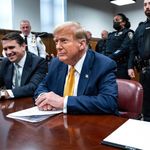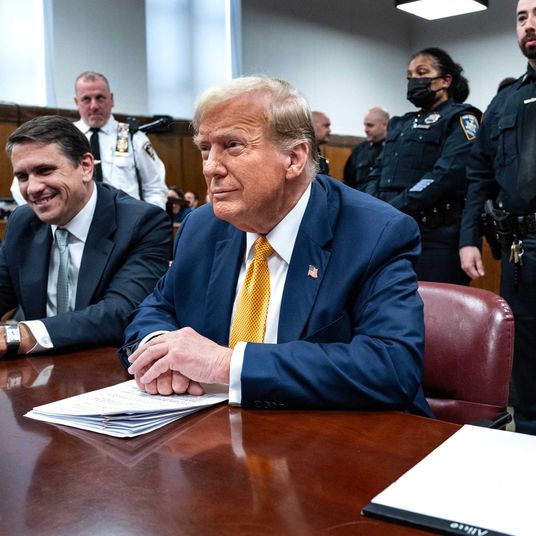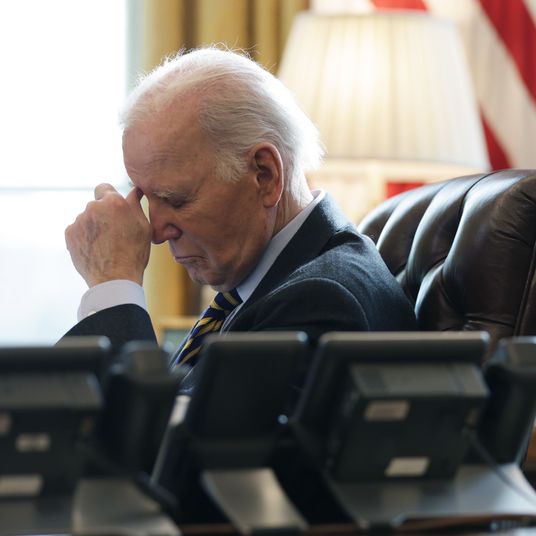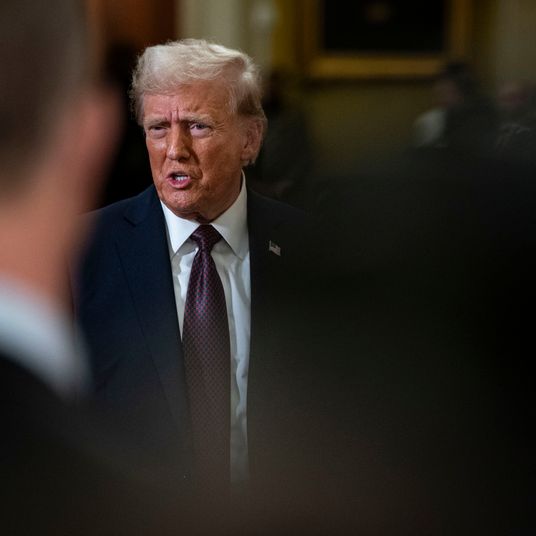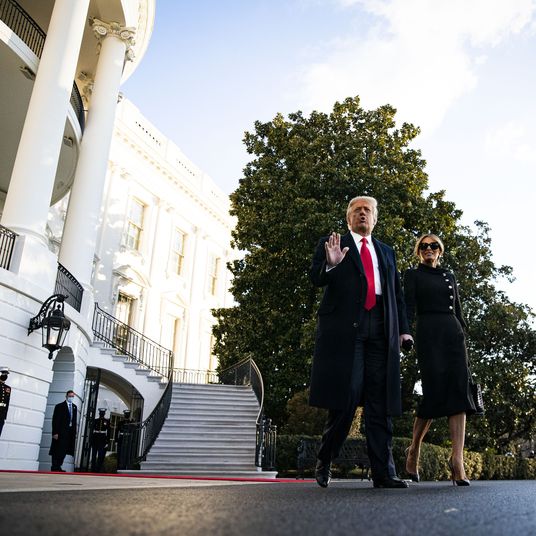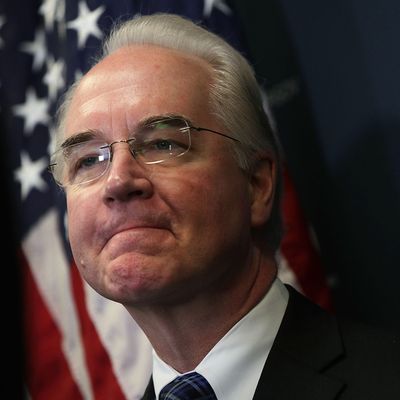
There’s reason to believe that the head of Health and Human Services has committed multiple federal crimes. In another political era, this fact might generate weeks’ worth of cable news chyrons and buckets of spittle from talking heads. In the Trump era, it’s a footnote.
When the president of the United States is a literal con man who (ostensibly) confesses to obstruction of justice on the nightly news — and intimidates witnesses over Twitter — it’s hard to get too excited about the Health secretary’s alleged affinity for insider trading.
But excitement is warranted — because Tom Price’s blatant corruption grows more blatant by the day. And, unlike the president, Price can be held legally accountable for criminal behavior.
In March 2016, then-congressman Tom Price bought thousands of dollars of shares in six pharmaceutical companies, all of which had developed biological drugs (a.k.a. “biologics”) — medications grown from live cells.
The following month, Price pressured senior members of the Australian government to accept stronger monopoly rights for makers of biologics in the Trans-Pacific Partnership, according to a new report from ProPublica:
The Australian government was getting in the way of one change demanded by U.S. pharmaceutical companies. Makers of cutting-edge biological drugs wanted to have data from their clinical trials protected from competitors for 12 years, as they are under U.S. law — not the roughly five years permitted under the TPP. Australian officials insisted that an extension would deprive consumers of cheaper alternatives for too long.
… In Canberra, Price and another Republican, Rep. John Kline of Minnesota, pressured senior Australian trade officials to modify their position on the 12-year extension, according to a congressional aide who was on the trip. The Australians explained that they had no intention of changing their laws or rules in ways that could increase drug prices. Price and Kline continued pushing, according to the aide, asking for a side letter or other written guidance that the period would be extended in Australia even if it weren’t spelled out in the TPP itself.
Price is far from the only Republican to make “exporting America’s high drug prices” a top priority on matters of trade. But it is unusual for a member of Congress to directly lobby foreign officials to adopt a policy that benefits companies he recently bought shares of.
The STOCK Act of 2012 prohibits members of Congress from trading on nonpublic information gained through their legislative duties. The law does allow lawmakers to vote on bills that have wide applicability, even if that legislation would likely affect their portfolios. But if a lawmaker buys stock in a company, and then leads a legislative effort that directly benefits said company, he or she is on shakier legal and ethical ground.
And previous reporting suggests that Tom Price performed that very two-step at least three times:
1) In March 2016, Price bought $15,000 worth of stock in Zimmer Biomet, a medical-device company. Two days later, the congressman introduced a bill that would have protected that company from a cut in its Medicare reimbursement rate. Zimmer Biomet then put money in his campaign coffers.
2) That same month, Price made the aforementioned purchase of shares in six drug companies — and then led a legislative and public-relations effort to defeat regulations that would have (almost certainly) hurt those companies’ profits.
3) Last summer, Price made a bulk purchase of discounted shares in Innate Immuno, an Australian biotechnology company. Shortly thereafter, he helped push through legislation that expedites the FDA’s approval process — a reform that directly benefits Innate Immuno, which is working to get its wares onto the U.S. market. Price has already enjoyed a 400 percent paper gain on his investment in the company.
At his confirmation hearings, Price was asked about how he managed to get that discount on Innate Immuno’s shares. The congressman replied that the discounted shares “were available to every single individual that was an investor at the time.”
Weeks later, The Wall Street Journal found that “the cabinet nominee was one of fewer than 20 U.S. investors who were invited last year to buy discounted shares of the company — an opportunity that, for Mr. Price, arose from an invitation from a company director and fellow congressman.”
So, it at least looks like Price knowingly lied to Congress, which is a federal crime.
In March, ProPublica revealed that U.S. Attorney Preet Bharara was overseeing an investigation into Price’s stock trades when Trump relieved him of his duties.
The wording of the STOCK Act — and the difficulty of proving that someone deliberately gave false testimony to Congress — may shield Price from any legal repercussions for his actions. And, who knows, maybe Price’s ideological commitment to advancing pharma’s interests is completely unrelated to his taste for the industry’s stocks.
But there is no excuse for an elected representative to even create an appearance of corruption this blatant. To trade more than $300,000 worth of stock in health companies while pushing legislation that would increase the value of those shares is to pour kerosene on the flames of cynicism that are consuming America’s civic life.



